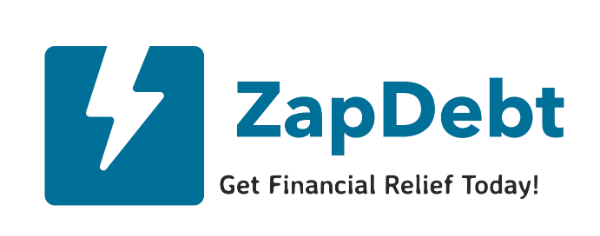Navigating the world of finances can sometimes feel like a maze, especially when juggling multiple debts. Debt consolidation has become a beacon of hope for many, offering a simplified path to financial management. Having your Debt Consolidated can have many advantages including:
- Simplified Financial Management
- Potential Interest Savings
- Improved Credit Score
- Reduced Monthly Payments
Are you struggling to juggle all your monthly debt repayments? Contact ZapDebt today and we will connect you with a trusted Debt Consolidation Expert.
What is Debt Consolidation?
At its core, debt consolidation is a financial strategy designed to streamline multiple debts into a singular, more manageable loan. Imagine having several credit card balances, personal loans, and other financial obligations. Instead of keeping track of various due dates, interest rates, and payment amounts, debt consolidation allows you to merge these debts into one. The result? One monthly payment, often with a reduced interest rate, leads to potential savings and a clearer financial picture.
How Does Debt Consolidation Work?
The mechanics of debt consolidation can be broken down into a few key steps:
- Taking Out a New Loan: The first step involves securing a new loan, which will be used to pay off multiple existing debts. This loan can be either secured (requiring collateral like a home) or unsecured.
- Settling Existing Debts: Using the funds from the new loan, all the individual debts are paid off. This means you no longer owe multiple creditors; instead, you have a singular debt to the institution that provided the consolidation loan.
- Repayment: With the individual debts settled, your focus shifts to repaying the consolidation loan. This is typically done in monthly instalments, with the terms and interest rate set out in your loan agreement.
- Potential Savings: One of the primary attractions of debt consolidation is the possibility of a reduced interest rate. By consolidating, you might find that the interest you’re paying on the new loan is lower than the combined interest of your previous debts. Over time, this can lead to significant savings.
- Simplified Financial Management: With just one monthly payment to consider, budgeting and financial tracking become more straightforward. No more missed payments or juggling different amounts – just one consistent repayment to plan for.
In essence, debt consolidation offers a lifeline to those feeling overwhelmed by multiple debts. By streamlining repayments and potentially reducing interest, it provides a clearer path to financial freedom. However, as with all financial decisions, it’s crucial to do thorough research and consult with professionals to ensure it’s the right choice for your unique circumstances.
How Debt Consolidation can benefit you
Embarking on the journey of debt consolidation can offer a myriad of advantages. Here are some of the most notable benefits:
- Simplified Financial Management: One of the most immediate benefits is the ease of managing a single monthly payment, as opposed to juggling multiple payments with varying due dates.
- Potential Interest Savings: By consolidating, there’s a possibility of securing a lower interest rate than the combined rates of your individual debts. Over time, this can translate to significant savings.
- Improved Credit Score: Consistently meeting the repayment obligations of a consolidation loan can positively impact your credit score over time.
- Reduced Monthly Payments: Depending on the terms of your consolidation loan, you might find that your monthly payment is more affordable than the combined payments of your previous debts.
- Avoid Late Fees: With only one payment to manage, there’s a reduced risk of missing payments, helping you avoid late fees and additional interest charges.
- Clear Path to Debt Freedom: With a set repayment schedule, you’ll have a clear timeline of when you can expect to be debt-free.

Types of Debt Consolidation Loans
The landscape of debt consolidation loans is varied, catering to different financial situations. Here’s a breakdown:
- Secured Loans: Backed by an asset (like a home or car), these loans often come with lower interest rates due to the collateral involved. However, there’s a risk of losing the asset if you default on the loan.
- Unsecured Loans: These loans don’t require collateral, making them a bit riskier for lenders. As a result, they might come with higher interest rates.


- Balance Transfer Credit Cards: This option allows you to transfer debts from multiple credit cards to one card, often with a promotional low or zero interest rate for a set period.
- Home Equity Loans: Using the equity in your home as collateral, these loans can offer attractive interest rates but come with the risk of losing your home if you default.
- Personal Loans: Versatile and available for various purposes, personal loans can be either secured or unsecured and are often used for debt consolidation.
Making the Right Choice: Selecting Your Debt Consolidation Loan
Selecting the right consolidation loan is pivotal to ensuring your financial well-being. Here are some guiding steps:
- Evaluate Your Debt: Begin by understanding the total amount you owe and the interest rates on each debt. This will give you clarity on what you’re consolidating.
- Determine Affordability: Review your monthly budget to ascertain how much you can comfortably repay each month.
- Research Interest Rates: Seek a consolidation loan that offers a lower interest rate than your current debts. This can lead to potential savings.
- Understand the Terms: Familiarise yourself with all terms and conditions, including any associated fees or penalties, to avoid surprises down the line.
- Consult Professionals: Engage with a financial advisor or credit counsellor. Their expert guidance can help tailor the decision to your unique situation.
In conclusion, while debt consolidation offers a promising avenue for those grappling with multiple debts, it’s essential to approach it with informed diligence. Taking the time to understand the nuances and seeking professional advice can pave the way for a more secure financial future.
Why Reach Out to a ZapDebt Partner for Debt Consolidation?
Debt can be tricky. That’s why ZapDebt is here to help. We’ve picked the best Debt Counsellors in South Africa to be on our Network. Here’s why you should think about using a ZapDebt partner for your debt consolidation:
- One Payment, Not Many: Our partners can turn many debts into one monthly payment. This makes things simpler and can even save you money.
- Expert Help: Debt can be confusing. ZapDebt partners know their stuff and can guide you through it all.
- Plans Just for You: Everyone’s different. Our partners get that. They’ll make a plan that fits just right for you.
- No Hidden Surprises: With ZapDebt, what you see is what you get. Our partners are open and honest, so you’re never left guessing.
- Looking Ahead: Our partners don’t just help now; they help you plan for the future. They give advice and tools to keep you on track.
If you’ve got lots of debts and want a simpler way, think about debt consolidation. Our partners are here to make things easier and clearer for you.
Frequently Asked Questions: Debt Consolidation
Navigating the realm of debt consolidation can often lead to a flurry of questions. Here, we’ve compiled a list of frequently asked questions to offer clarity and guidance on this financial strategy.
What Exactly is Debt Consolidation?
In simple terms, debt consolidation is the process of merging multiple debts into one single loan. Instead of juggling various payments, interest rates, and due dates, you’ll have one consolidated payment, often with a more favourable interest rate.
How Does Debt Consolidation Differ from Other Debt Solutions?
Debt consolidation focuses on merging debts to simplify repayments and potentially reduce interest. Other solutions, like debt settlement or bankruptcy, involve negotiating to pay less than owed or erasing debts altogether, respectively.
Is Debt Consolidation Right for Everyone?
While it offers numerous benefits, it’s not a one-size-fits-all solution. It’s best suited for those with multiple high-interest debts looking to simplify their financial landscape. It’s essential to assess your financial situation and consult with professionals before making a decision.
Will Debt Consolidation Impact My Credit Score?
Initially, applying for a consolidation loan might cause a slight dip in your credit score due to the credit inquiry. However, timely repayments can enhance your score over time.
Are There Any Hidden Fees?
Always decipher the fine print. Some consolidation loans might come with fees such as origination fees or early repayment penalties. It’s crucial to be aware of all associated costs.
How Long Does the Debt Consolidation Process Take?
The process duration can vary. Once approved for a loan, settling existing debts can be relatively quick. However, the repayment period for the consolidation loan will depend on the loan terms.
Can I Still Use My Credit Cards After Consolidating?
While technically you can, it’s advisable to refrain from accumulating more debt, especially while you’re paying off the consolidation loan.
What Happens If I Miss a Payment on My Consolidation Loan?
Missing a payment can lead to late fees, increased interest rates, and potential negative impacts on your credit score. It’s essential to stay diligent with repayments.
How Do I Choose the Best Debt Consolidation Provider?
Research is key. Look for providers with favourable interest rates, transparent terms, and positive reviews. Consulting with financial experts can also offer valuable insights.
Want to know more about our Debt Solutions? Have a look at our Debt Solution resources.
-
How Much Do Bankruptcy Lawyers Charge in 2023?
-
How Much Does Debt Restructuring Cost in 2023?
-
How Much Does Debt Counselling Cost in 2023?
-
Debt Restructuring FAQ
-
Complete Guide to Debt Restructuring
-
Bankruptcy and Insolvency FAQ
-
How to Remove Debt Review Status
-
The Debt Review Process: 10 Steps to Financial Freedom
-
How Much Do Debt Counsellors Charge for a Debt Review?
-
Comprehensive Guide on Debt Review
-
FAQ: Debt Counselling
-
FAQ: Debt Review
